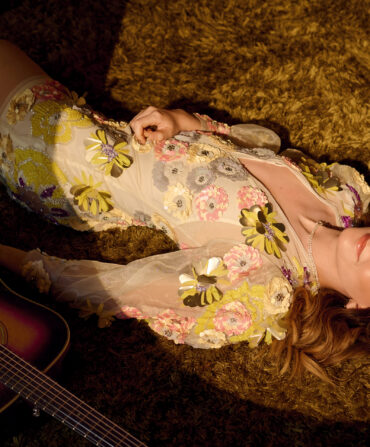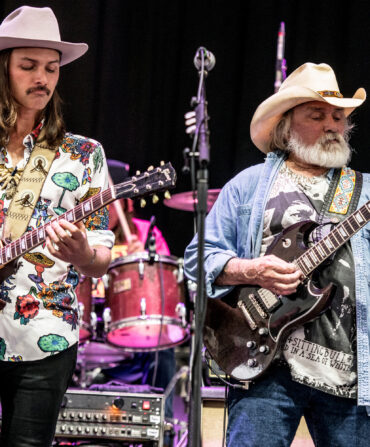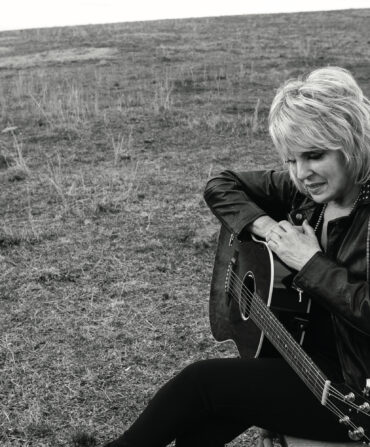Music
Who Do You Love
A true story of music, magic, and a long night in the desert with Bo Diddley
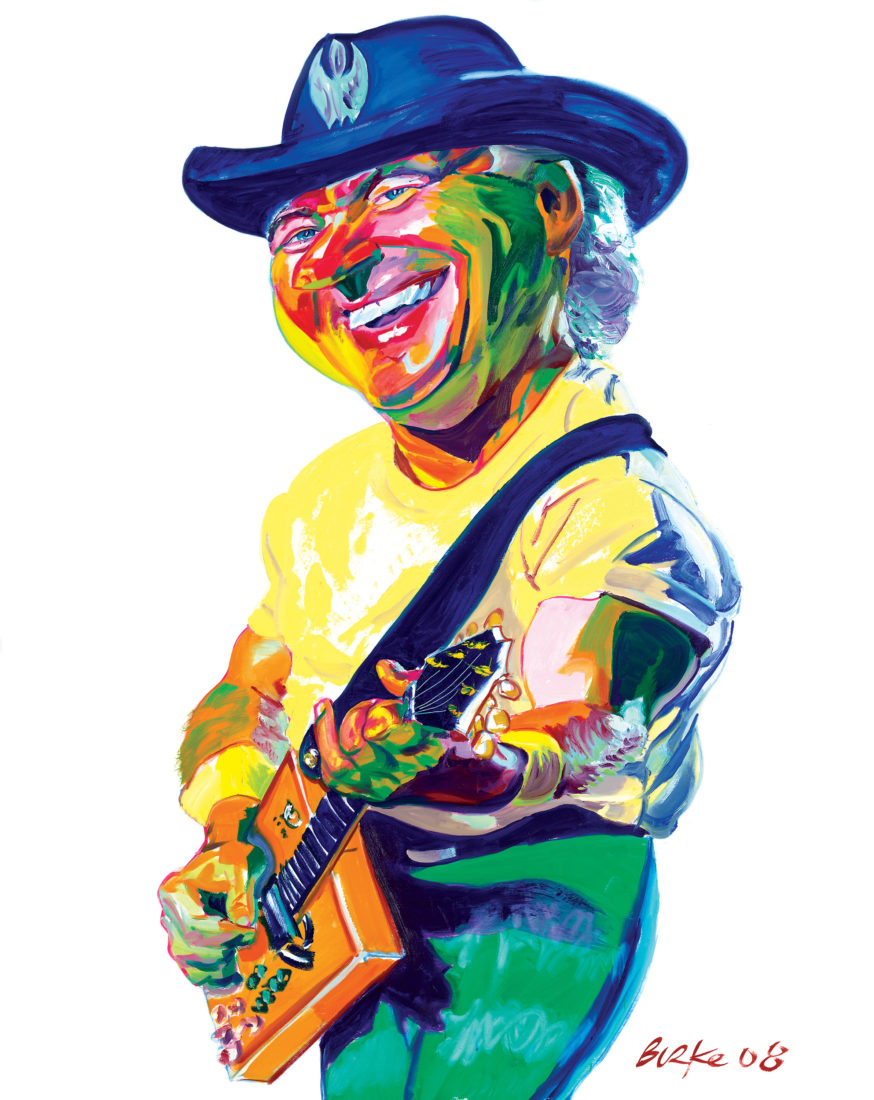
Illustration: Philip Burke
Bo Diddley saved my life one night in Africa!
Now that I have your attention, I guess I better fill in a few blanks here. I apologize for the sensationalism of the opening line, but a headline like that seems to work in these times we live in. If it sounds like I am trying to embellish a story, well, isn’t that what writers do? I readily admit to a recurrent problem of moving unpredictably between fiction and fact. But if Bo Diddley didn’t actually save my life on a trip to the land of the desert blues, then he sure as hell saved my ass. So here’s the real story…
Last year, spurred on by Lawrence of Arabia–like descriptions of camel-riding bands of Tuareg nomads sporting Fender Telecasters, portable Peavey amps, and Kalashnikov machine guns and playing at a festival in the middle of the Sahara Desert, I signed on for a wild journey to the West African country of Mali with my good friend Tom Freston. For those not familiar with the likes of Toumani Diabaté, Salif Keita, Oumou Sangare, Mory Kanté, Ali Farka Touré, Tinariwen, or the Rail Band, the music of Mali is to Africa what the music of the Mississippi Delta is to America. It is fittingly referred to as the desert blues.
In preparing for the trip, I figured the first thing to do was find out where this festival was, as in latitude and longitude. I wanted it in my GPS in case we wound up lost in the Sahara (which did happen). I Googled “festival au desert” and up it popped like a ready piece of toast. The headline on the funky festival Web site immediately fueled my curiosity. It read: “Only four hours from Timbuktu.” It reminded me of all those Stuckey’s signs I used to see as a kid driving through Florida, but Timbuktu was literally and figuratively in the middle of nowhere. That made the idea of that stamp on my passport another reason to go to the Festival in the Desert.
The Whirlwind Tour
I wasn’t the only fly captured in Freston’s trap. He managed to convince a quartet of other adventurous souls to sign on. Our cluster of middle-aged white men consisted of MTV executive Bill Flanagan; Dr. Kino Bachellier (every expedition needs a doctor on it); Jonathan Brandstein, who’d done the same trip a year earlier by himself; and the legendary Chris Blackwell, who had brought Bob Marley to the attention of the entire planet. Blackwell was truly a man without borders, and he had traveled extensively through Africa long before we arrived on the scene.
We gathered for our journey on a beautiful Sunday morning at the airport in San Juan, Puerto Rico, and headed east across the Atlantic, stopping in the Cape Verde Islands for a few days and then flying on to Bamako, the capital of Mali. Little did I know that I was about to have an experience that still inspires me to this day. It would be impossible to compress such a life-changing adventure and a tribute to a rock and roll legend into the columns of this magazine, so I will save the whole story of my trip to Mali for another time. But here’s a road-itinerary version of the hours leading up to the place and time where Bo saves Jimmy’s ass in the Sahara:
Monday
9:00 p.m. Arrive in Bamako and meet Syndou Samagassi, our invaluable local guide.
11:00 p.m. Get dinner at the hotel, where we receive our gifts of indigo blue Tuareg turbans (boy, will we need them).
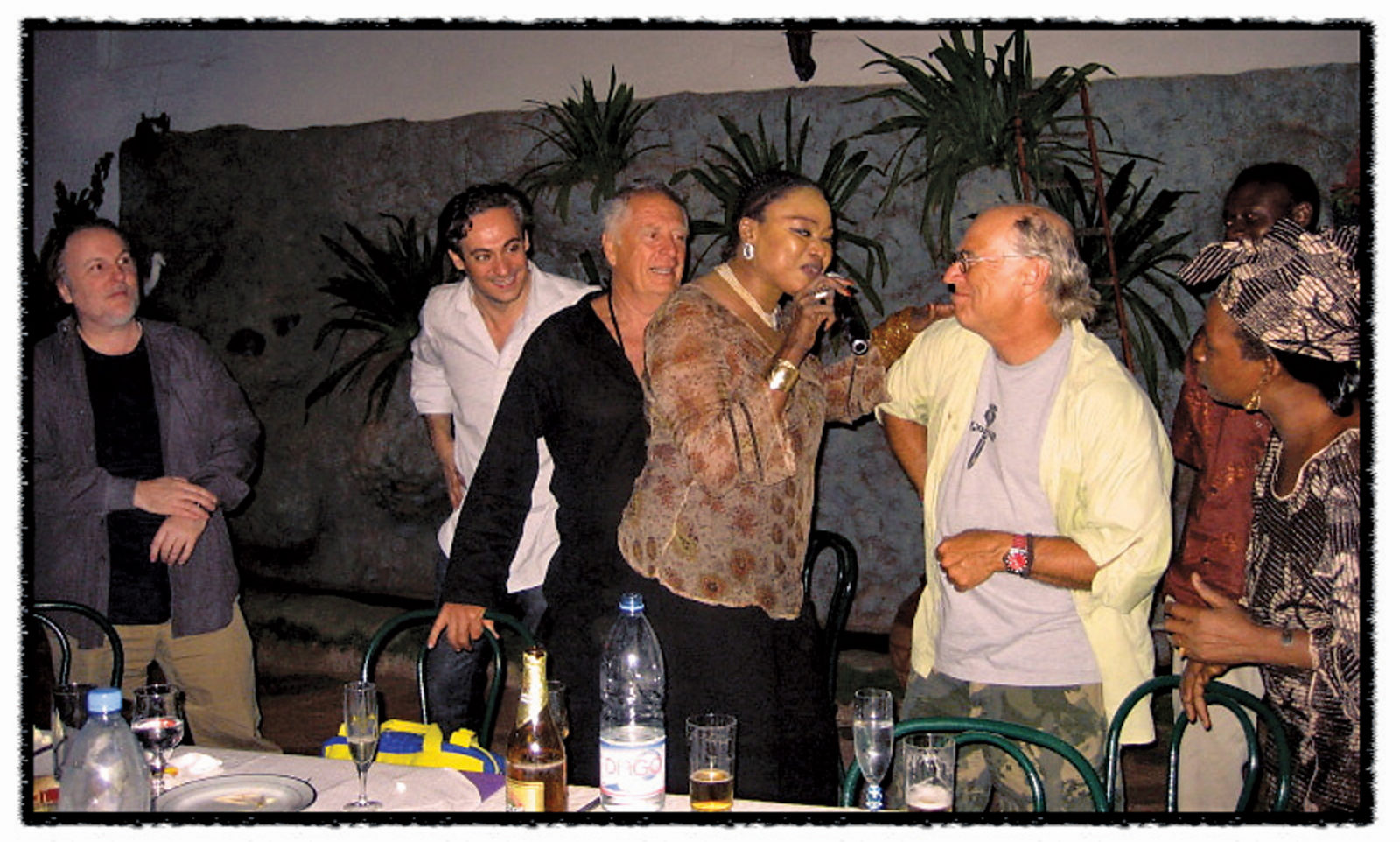
Photo: Photograph courtesy of Jimmy Buffett
Late Night
From left, Jonathan Brandstein, Chris Blackwell, Oumou Sangare, and the author at about four in the morning.
Tuesday
11:00 a.m. Tour the marketplace.
1:00 p.m. Meet U.S. ambassador and embassy staff at U.S. embassy (in case we need to get rescued from the desert).
3:00 p.m. Lunch and a concert at a club called Savana.
4:30 p.m. Visit Bamako railroad station. This is the Apollo Theater of Bamako and has produced a long list of some of Mali’s greatest performers.
5:00 p.m. From a discussion in the bar at the train station we learn that the original members of the Rail Band are all in Bamako. This legendary band hasn’t performed together in twenty-five years. We strike a deal, and Volcanic Productions (our fly-by-night company) books the Rail Band at the railroad station that evening for $250. I will open the show with an acoustic set in the bar.
7:00 p.m. Freston and I meet a man at the train station and pay him the $250 up front.
8:00 p.m. Start drinking.
9:00 p.m. I do an hour show for embassy staff, spies, and locals; Blackwell films the whole thing.
9:30 p.m. Blackwell, Freston, Brandstein, and Bachellier almost get arrested for filming the departure of the train to Dakar. Money talks.
10:00 p.m. Several of the Rail Band members show up (I recognize them from album covers) and begin to set up their gear.
11:00 p.m. Lighting problem addressed. Since there have been no shows on the patio for over twenty years, there is no lighting. U.S. embassy staff immediately assess the problem and assemble embassy vehicles so that their headlights illuminate the stage (your tax dollars at work).
11:15 p.m. The Rail Band reunion gets under way.
Wednesday
1:00 a.m. As the Rail Band finishes to a standing ovation, we get a call that Toumani Diabaté and the Symmetric Orchestra are playing a special show in Blackwell’s honor. We say goodbye to the Rail Band and head to a club called Le Hogon.
3:00 a.m. Toumani finishes up, and as we are taking photos, we get a call that singer Oumou Sangare, an international star and true Malian legend, has heard we are in town and is waiting to honor us with a show at her hotel bar. We race across the bridge as Blackwell and Syndou film madly with their video cameras like the desert version of the Coen brothers.
The Spirit of Bo Diddley
Needless to say, after this kind of day topped off with two performances at two legendary Bamako nightspots and lots of champagne toasts, I had a significant buzz going as we pulled into the parking lot of Oumou’s Wassulu Hôtel Résidence. The joint was jumping, and when we passed through the hotel lobby to the club, I noticed that Syndou was carrying my guitar. “Just in case,” he said with a sly smile on his face. As we passed the stage, it was more than obvious that the assemblage of amazing musicians playing did not need any help from me in pleasing all the revelers vibrating on the dance floor.
Suddenly Oumou towered above me as I banged away on my Little Martin acoustic guitar. She began making up her own verses in Bambara and sang harmony on the choruses
Let’s just say that Oumou Sangare stands out in a crowd. Though I had seen only CD-size photos of her, I immediately recognized the elegant woman seated at a long table behind the dance floor waving us over. Oumou greeted our gang of desert rats with hugs and kisses. No sooner had we taken our seats than buckets of champagne and hors d’oeuvres covered the table. The party was continuing. Talk about a multitasker: Oumou carried on conversations with us and other friends in English and French and at the same time chimed in with lyrics to the music coming from the bandstand as she posed for photos with passing fans. Somehow in the middle of all of her “plate spinning,” she found time to conspire with Syndou, and the next thing I saw was Syndou opening the guitar case and taking out my Little Martin. I was about to tell him to put it back when Oumou stood up and spoke into her wireless microphone and announced, in three languages, my impending debut performance at Wassulu Hôtel Résidence. When she was finished, she put her hand on my shoulder and whispered in my ear, in that laissez-faire style, “Jimmy, pas de problème. Il est quatre heures du matin” (No problem! It’s four in the morning).
I knew I wasn’t saying no to Oumou. I offered a prayer to the Baby Jesus of late-night jams in West Africa and headed for the stage to less than scattered applause. At that moment, God appeared to me in the form of a tall, thin guitar player who informed me that the band was playing in open E. Tuning was not something I was really thinking about doing at that moment, but then the kind guitar player offered me his digital guitar tuner. The next thing I knew, I was plugged into a vintage Peavey tube combo classic amp onstage and the band was waiting for instructions. I made myself understood in French, and they made me less fearful of what was about to happen. It was showtime, and somehow the ability to make it up on the spot did not fail me. In a millisecond I knew that good as the band was, trying to teach them a head arrangement of a Jimmy Buffett song was not the right choice. So, what was? The great thing about the desert blues sound was that rarely did the band ever change key. They played and stayed in the key of E, and without thinking, I started a groove in E; then the band set an instant groove that I rode like a point break on the North Shore of Oahu—no chord changes, no modulations, and no thinking. The lyrics just flowed.
I walk 47 miles of barbed wire,
I use a cobra snake for a necktie.
I got a brand-new house on the roadside,
Made from rattlesnake hide.
I got a brand-new chimney made on top,
Made out of a human skull.
Now come on take a walk with me, Arlene,
And tell me, who do you love?
Who do you love?
Who do you love?
Who do you love?
Who do you love?
That song had been with me since the first day I had heard it back in Mississippi, just waiting for the right place and the right time to do its magic. “Thank you, Bo Diddley, thank you,” I remember thinking as the crowd on the dance floor moved en masse toward the foot of the stage. I had them, but something was not quite right. They were going too wild. What I didn’t know was the crowd had seen something I could not. Suddenly Oumou towered above me onstage as I banged away on my Little Martin acoustic guitar. She began making up her own verses in Bambara and sang harmony on the choruses. Tell me, who do you love?
It was one of those moments that you want to last forever, and suddenly it was over way too soon. I left the stage to cheers and high fives, packed my guitar away, and told Syndou to weld the latches shut. Then I joined our hostess for a well-deserved and final glass of champagne. In less than four hours we would be heading out into the desert to Timbuktu.
Okay, so Bo Diddley might not have really saved my life, as I was never threatened by anything or anybody my entire time in Africa other than a horrific sandstorm and the treacherous desert thornbushes known as cram-crams. But Bo had saved the moment, and his song had made me king of the desert, if only for fifteen minutes of the thirty-first of my thirty-six hours in Bamako. It was a moment that will last a lifetime for me, and I hope it will for everybody in the club that night on the far side of the world. So with that tale told all I can add is this: Thank you, Bo, and may you still be rocking in the next world.


